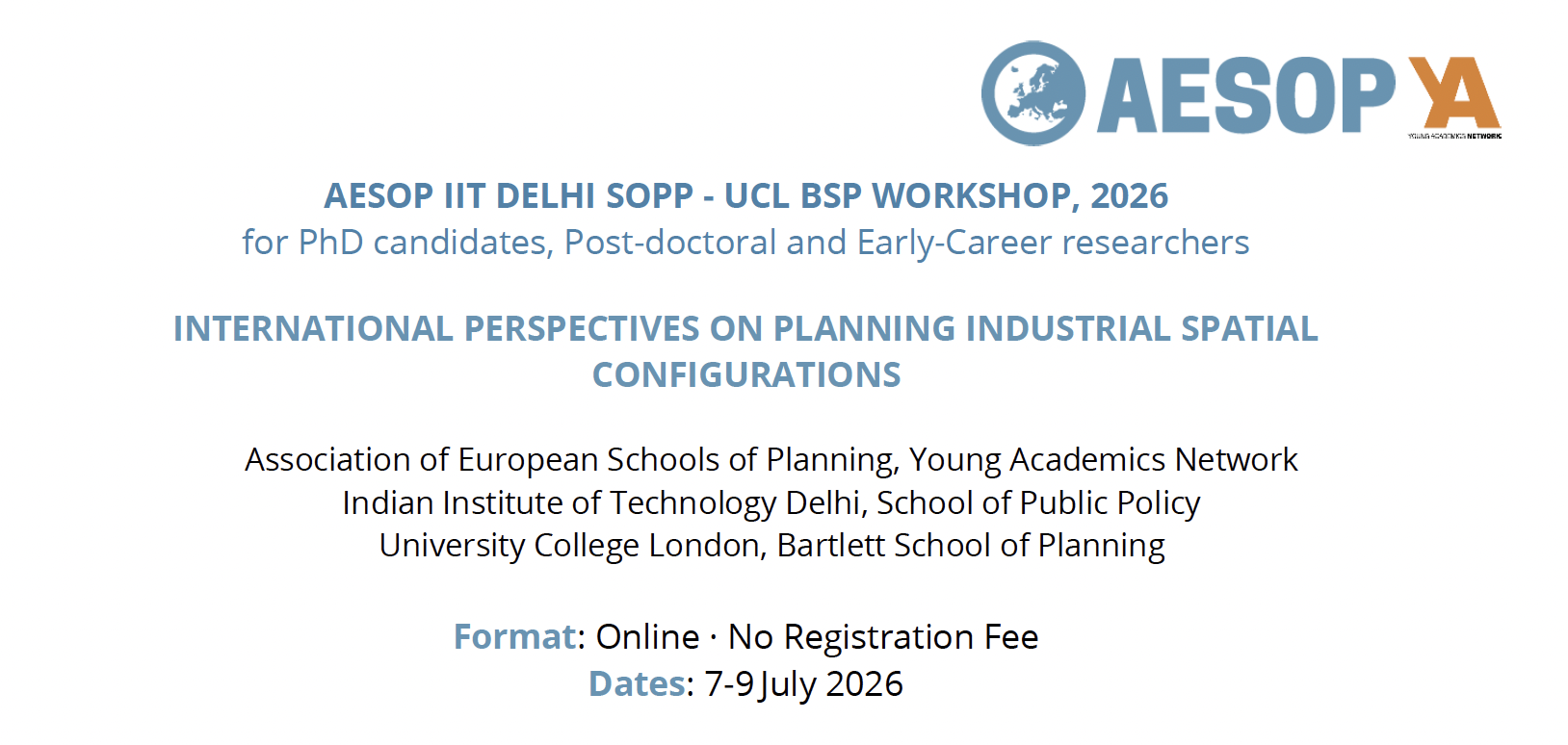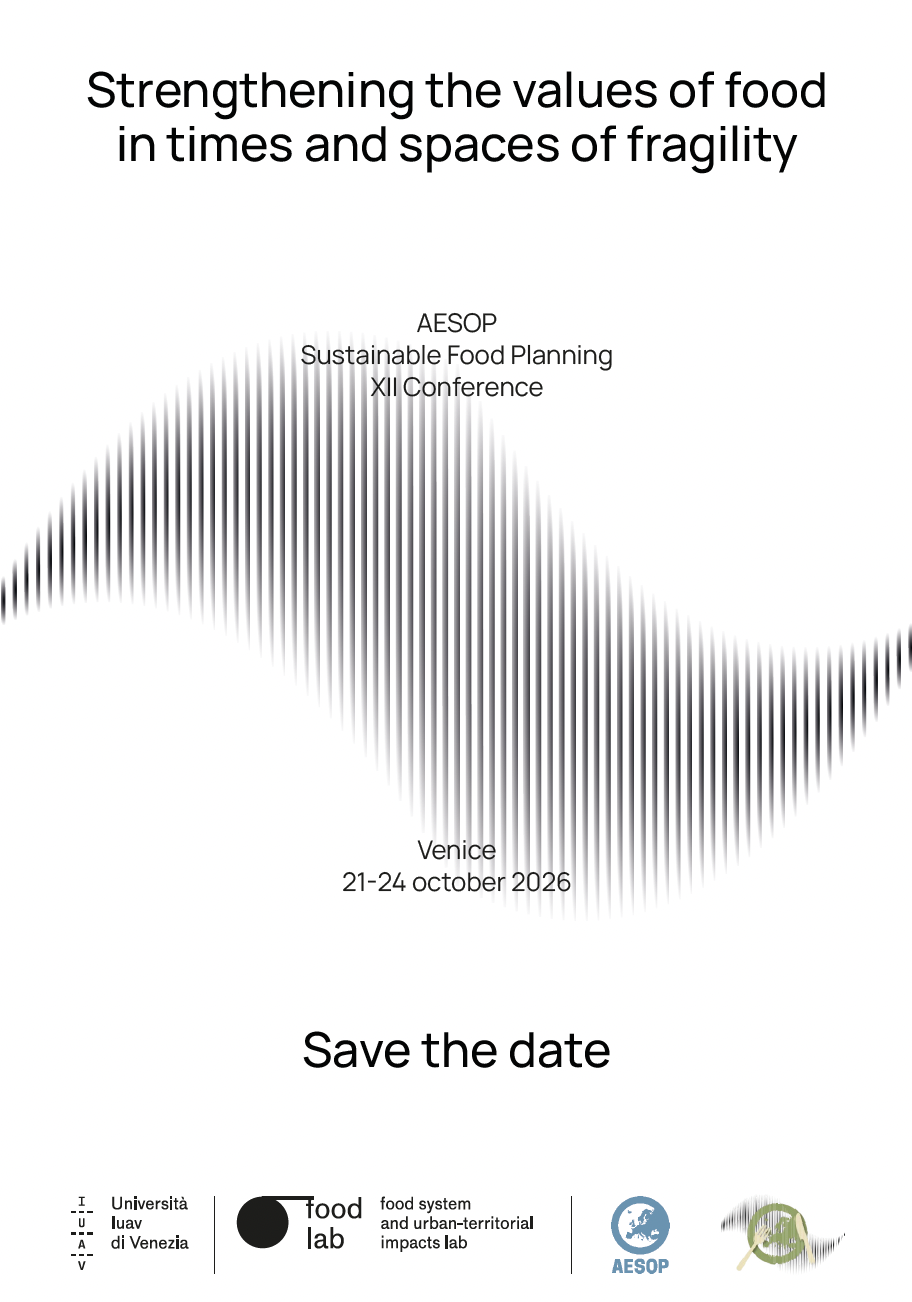THEMATIC GROUPS
- Details
- Parent Category: THEMATIC GROUPS
- Category: Planning/Conflict
TU Berlin, 30 September / 2 October 2025
DFG reference GZ: GU 1042/6-1
The conference
The AESOP Planning/Conflict thematic group conference titled Contested urban policy: breeding concrete utopias was held in Berlin between 30 September and 2 October 2025 at the Institute of Urban and Regional Planning, Building A. Information on the call and on the program is attached and is also available online at: https://www.tu.berlin/en/planningtheory/research-publications
The conference was initiated, conceived and organized at TU Berlin by Enrico Gualini and supported by a scientific committee composed of:
- Francesco Campagnari, EHESS Paris
- Enrico Gualini, Technische Universität Berlin
- Verena Lenna, Vrije Universiteit Brussels
- Alessandra Manganelli, Universitat de Barcelona
- Miguel A. Martinez, Uppsala Universitet
- Stijn Oosterlynk, Universiteit Antwerpen
- Carolina Pacchi, Politecnico di Milano
- Nanke Verloo, Universiteit van Amsterdam
The conference was based on an open call for papers widely publicized through academic and non-academic channels, resulting in 75 proposal submissions. Of these, 60 were accepted for inclusion in the program. Ultimately, the conference was attended by 65 registered participants, backed by a local team of four.
The conference program ultimately included 48 papers, organized in 8 parallel sessions, with members of the scientific committee serving as discussants/moderators. The program also included two keynote
speeches by Miguel A. Martinez (Uppsala Universitet) and Nanke Verloo (Universiteit van Amsterdam) as well as a final round table session with the participation of the members of the scientific committee.
Two post-conference activities were organized :
- on September 30, a field trip and visit to the cooperative development Haus der Statistik in Berlin-Mitte and panel discussion titled Contested urban policy: What spaces for concrete utopias? Critical reflections from the Berlin experience moderated by Enrico Gualini with the participation of Konrad Braun (ZKB eG, Haus der Statistik), Rebecca Wall (Urbane Praxis e.V.) and Enrico Schönberg (ZusammenStelle Rathausblock);
- on October 1, a field trip and visit to the community center ZK/U - Zentrum für Kunst und Urbanistik in Berlin-Moabit, moderated by Stefan Koderisch (ZK/U).
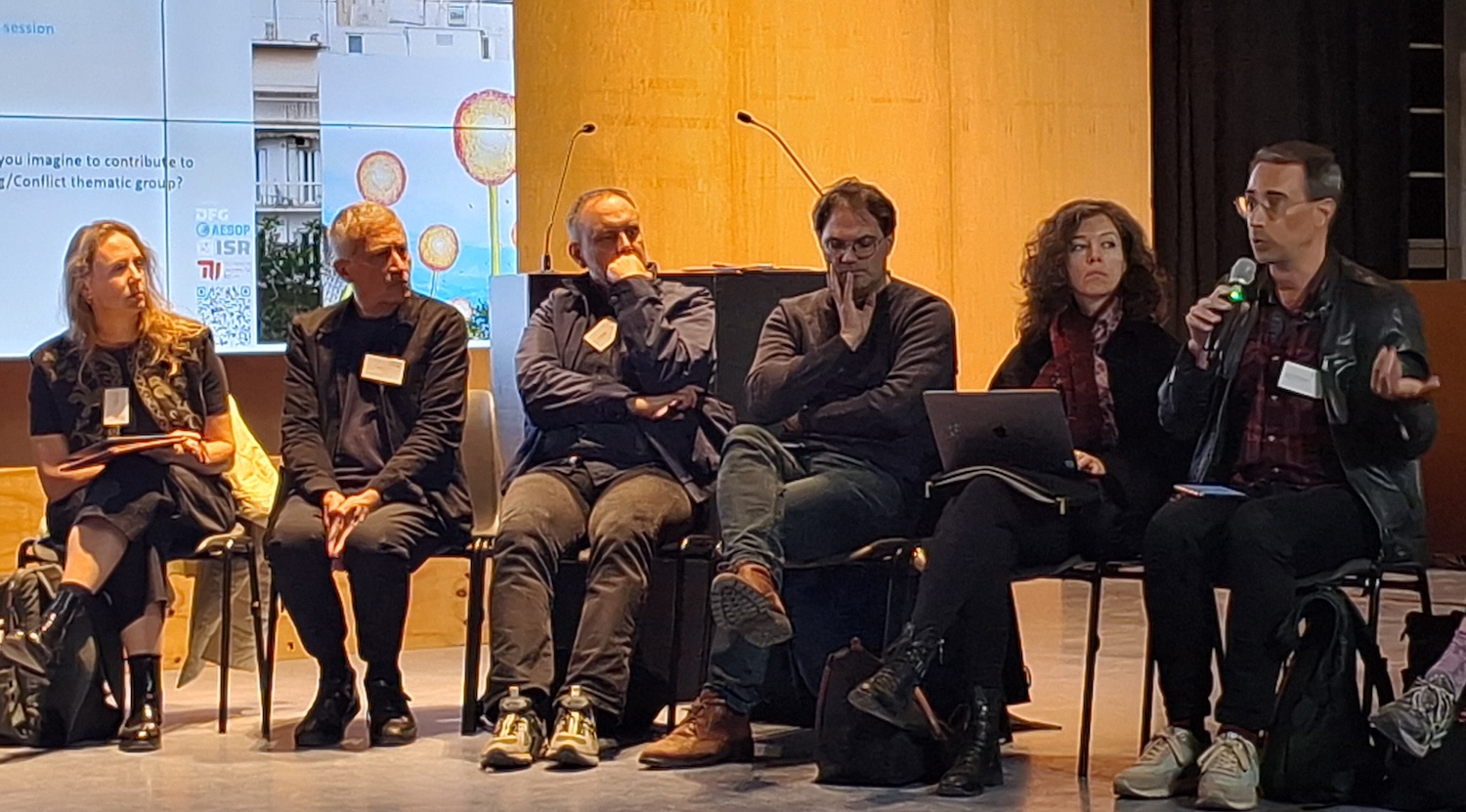
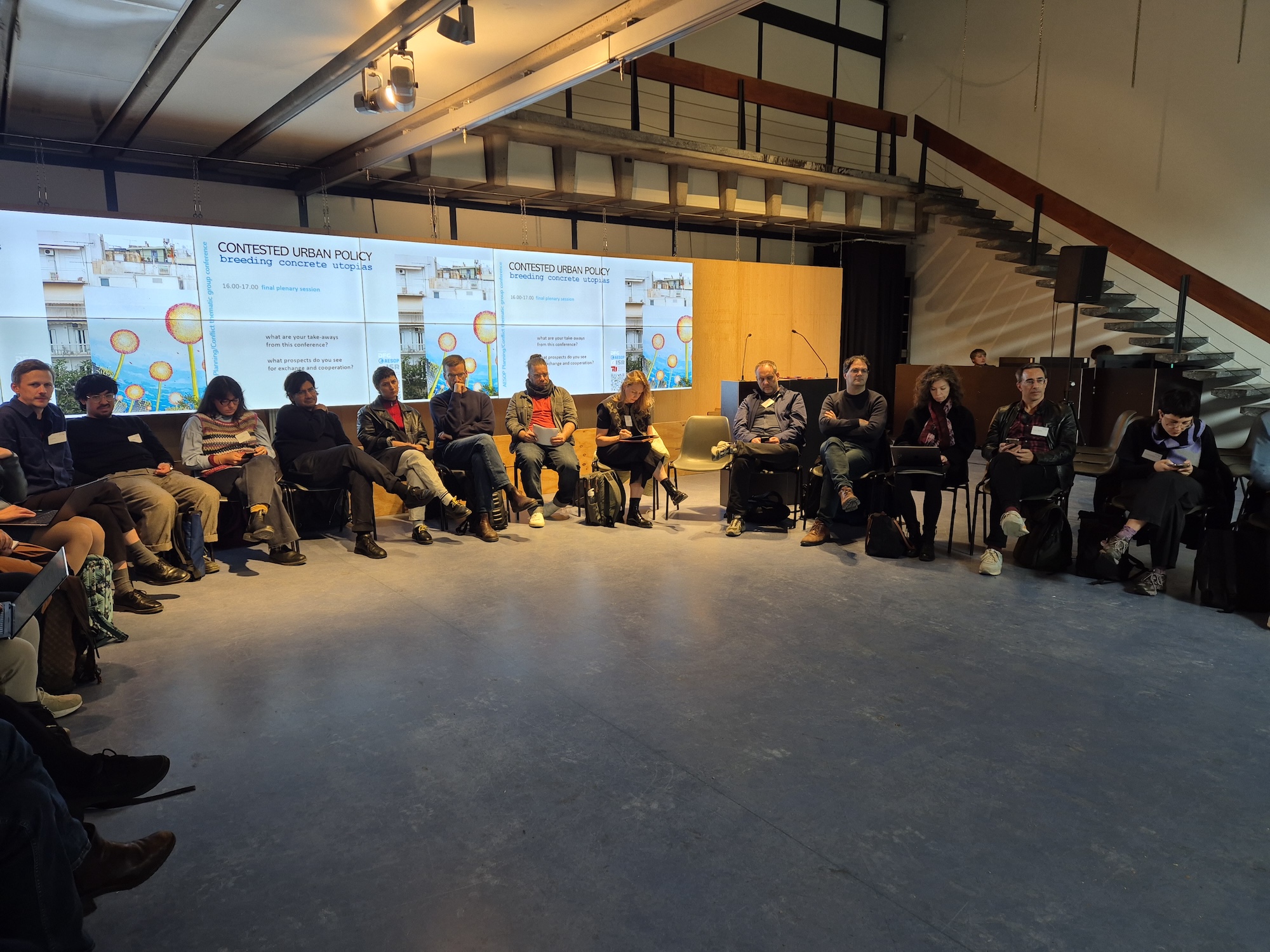
- Details
- Parent Category: THEMATIC GROUPS
- Category: Global South & East
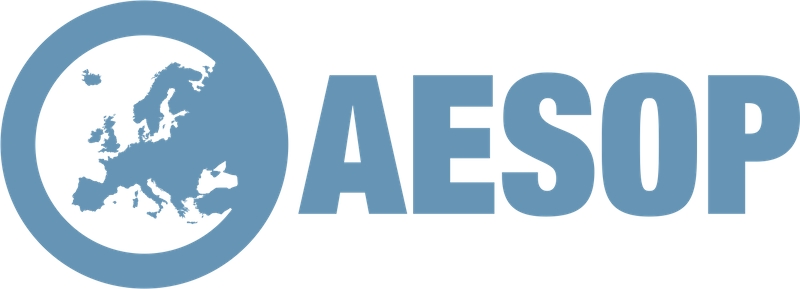
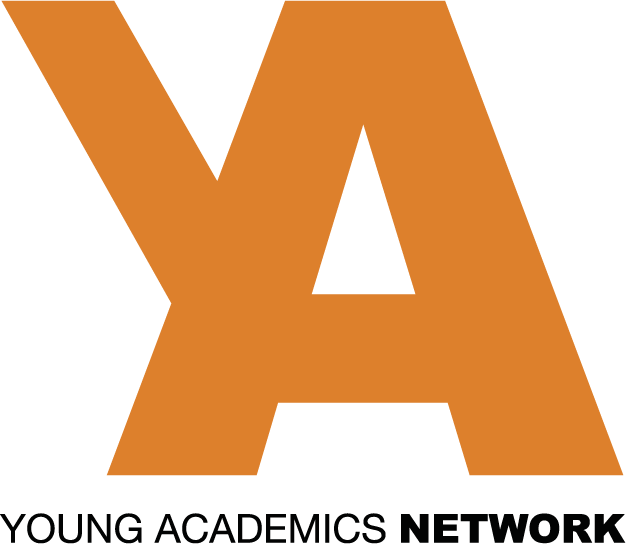
AESOP IIT DELHI SOPP - UCL BSP WORKSHOP, 2026
for PhD candidates, Post-doctoral and Early-Career researchers
INTERNATIONAL PERSPECTIVES ON PLANNING INDUSTRIAL SPATIAL CONFIGURATIONS
Association of European Schools of Planning, Young Academics Network
Indian Institute of Technology Delhi, School of Public Policy
University College London, Bartlett School of Planning
Format: Online · No Registration Fee
Dates: 7-9 July 2026
AGENDA
IIT Delhi, UCL and the AESOP’s Global South & East thematic group, invite PhD candidates, postdoctoral researchers, and early-career researchers (within 7 years of PhD) to participate in a three-day online workshopdesigned to:
- Provide feedback on research in progress
- Offer mentoring by senior planning scholars
- Facilitate international dialogue across India, Europe and other regions
- Create opportunities to interact with journal editors from leading journals
- Build collaborative networks among emerging scholars working on industrial development and spatial planning
THEME
Industrial spatial configuration (such as corridors, clusters, zones etc.) and related spatial policies are increasingly central to development strategies worldwide. They reshape regional economies, reconfigure land and labour geographies, influence infrastructure investment, and raise critical questions about governance, equity, environmental change, and long-term sustainability. The trajectory of theories and concepts related to industrial spatial configurations, from Marshall’s idea of ‘industrial districts’ (19th century), to ‘growth centres’ (mid 20th century), to growth poles (1960s), to ‘corridors’ (mid 20th century onwards), SEZs (1970s onwards), ‘clusters’ (1990s), and ‘urban innovation hubs (or districts)’ (21st century), has been dominated by cases and policies of major industrial countries of the global north (with the notable exception of China’s SEZs).
Industrialization in the global south, using theories from the north, has had mixed results. Industrialization was often misinterpreted as a guarantor of modernization, development, growth, and prosperity. This view did not fully appreciate the role of infrastructure and institutions, in fostering and sustaining industrial development. In India many spatial configurations have been attempted, but most of these tried to recreate the configurations without closely examining whether the underlying assumptions were valid in the local context.
As India (along with other parts of the world) looks towards an era of ‘industrial corridors’, this is an opportune moment to revisit the question of what it takes to successfully industrialize within local political and socio-spatial contexts. The workshop welcomes papers that make conceptual, empirical and methodological contributions, by studying industrial spatial configurations and the contextual factors that are important to their development. The papers may respond to the following themes.
1. Spatial Planning and Territorial Strategy
- National, regional and inter-regional spatial strategies
- Integration of industrial priorities within spatial planning, and spatial regulatory tools
- Transformations in settlement patterns
2. Governance and Institutions
- Multi-level governance arrangements—across national, regional and local scales
- Institutional roles, mandates and coordination among various authorities and agencies
- Decision-making and stakeholder engagement
3. Environment and Equity
- Displacement and compensation, processes of land acquisition
- Rural-to-urban transformations, impacts on agriculture
- Ecological impacts of spatial transformations
- Approaches to environmental regulations
4. Labour Geographies
- Shifts in value-chain organisation across regions and globally
- Worker-centric location decisions
- Informal enterprises within formal industrial development
- Labour mobility, migration, skills formation and everyday working conditions
IMPORTANT DATES
Deadline for submission of abstracts: 6 April, 2026
Acceptance notifications: 4 May, 2026
Event held online: 7-9 July 2026
ELIGIBILITY
Open to all PhD Candidates, Postdoctoral Researchers, and Early-Career Researchers (within 7 years of PhD), from across the world with suitable abstracts that fit to the theme. Selected participants will required to provide endorsement from a supervisor or employer.
ABSTRACT SUBMISSION
Send your submission to the organising team in the MS Teams form at this link).
Individual Details and Abstract Submission – Fill out form
For any queries, please email:
Click here: AESOP_IITD-UCL_Workshop_CfA_-_January2026.pdf
- Details
- Parent Category: THEMATIC GROUPS
- Category: Sustainable Food Planning
The XII international Conference of the Sustainable Food Planning TG will be hosted by the University Iuav of Venice on October 21-24, 2026. The Conference "Strengthening the values of food in times and spaces of fragility" invites scholars, practitioners, activists, and policymakers to explore how food values are mobilised, negotiated, and transformed across spaces and scales of fragility. The call for papers will be launched in early February. Stay tuned!
- Details
- Parent Category: THEMATIC GROUPS
- Category: Planning and Complexity

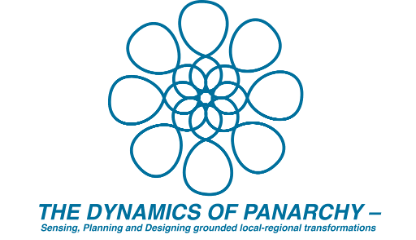
08/12/2025
By Christian Lamker (Groningen), Nils Björling (Gothenburg), Joanna Gregorowicz-Kipszak (Gothenburg)
The Dynamics of Panarchy: Sensing, Planning and Designing grounded local-regional transformations
23rd meeting of AESOP Thematic Group on Planning and Complexity
Non-hierarchical and mutual interaction, self-organization between actors, as well as structures and scales of transformation that follow. Around 40 researchers and practitioners from 7 countries met on 27 and 28 November 2025 in Gothenburg at Chalmers University of Technology for the 23rd meeting of the thematic group on Planning and Complexity within the Association of European Schools of Planning (AESOP). Key notes by Jon Norberg (Stockholm University) & Sara Brorström (University of Gothenburg) helped kick off discussions on complex adaptive systems, panarchy, organisation, and long-term failures and successes of planning. Jon Norbert talked about “The origin and science of panarchy: a complex adaptive systems perspective” at the start of the conference. Sara Broström reflected on “Multilevel planning and panarchy in the Gothenburg harbour area” before the whole group went out for an excursion guided by the City of Gothenburg to the harbour area, Lindholmen, and finished in the Lindholmen Science Park.
Thinking about complex systems, adaptive cycles, diversity, dependencies, and uncertainties, structured the two full days of presentations, discussions, conference dinner, and excursion. Six conference sessions and themes dealt with: 1. Rethinking Roles and Paradigms in Complex Spatial Transformations, 2. Flows, Networks, and Self-Organization in Spatial Systems, 3. Temporalities, Resilience, and Negotiation in Transitional Contexts, 4. Analytical Frameworks and Meta-Governance for Complex Futures, 5. Distributed Planning and Adaptive Governance in Transitional Contexts, and 6. Digital and Participatory Approaches to Spatial Complexity.
Four strong developments surfaced for the thematic group and beyond:
- First, the dedication for revisiting key concepts and positioning spatial planning proactively within complexity scholarship. Complexity theories, complex adaptive systems, non-linearity, emergence, and many more terms have moved into the vocabulary of planning theory and also attract and attach to planning practice. However, the open group makes traces loose and difficult to follow. Thus, we seized especially the knowledge of Ulysses Sengupta (Manchester School of Architecture) and Ward Rauws (University of Groningen) to summarise and revisit the history of key concepts and the group. It is now the time to also look further to what spatial planning with its distinct theoretical perspectives and practical challenges can bring back to further enrich complexity theory debates more widely.
- close links to local-regional planning practices. We witness a continuous interest and engagement by practitioners to engage within the thematic group and our discussions. It may get unnoticed in regular rewards and recognition schemes, but such open discussions across (perceived) theory-practice boundaries provide one of the most fertile grounds for mutual learning and future ideas.
- Third, the group has a long tradition of talking about and with complexity theories of cities, also connected to names like Juval Portugali and Michael Batty. More than previously, this meeting unveiled the need to complement the scope also with urban-rural linkages, peri-urban areas, and (seemingly) rural and peripheral areas at different scales. Transformations happen across scales and clear-cut categories, thus opening further avenues for using complexity theories.
- Fourth, international (comparative) research with perspectives from other continents and the Global South. Case studies, and to some degree also theories, have become more international. Context matters for spatial planning, and we witness how complexity starts bridging into multiple more diverse contexts like South Africa, India, Iran, or China.
The meeting also marks the 20th anniversary of the thematic group. Dating back to a first meeting in Vienna in 2005, we can even look at multiple generations of planning scholars engaging in one of the oldest thematic groups within AESOP. The group was founded, among others, by Nikos Karadimitriou (University College London) and Gert de Roo (University of Groningen), and has since then expanded. Examples are a complexity track at the annual AESOP Congress in 2009 and following.
Regular activities of the thematic group include workshops and conferences, online seminars, meetings, sessions, or tracks, during the annual AESOP Congress, and stretches to exchange visits and developing joint project ideas. Two special issues in the Journal of Architecture and in the Transactions of AESOP are upcoming in 2026 based on conferences in 2023 and 2024. Extended abstracts of the conference in Gothenburg will be published within the Chalmers reports series in the coming year and enable deeper insights into the versatility of active contributions.
Most importantly, the thematic group depends on the commitment and dedication of many members to support, share, and engage actively in their own fields, interests, locations, and capacities. The thematic group coordinators, Jenni Partanen and Christian Lamker, are open for discussion at any time. Further information about the thematic group is available online at https://aesop-planning.eu/tg-news/planning-and-complexity/the-dynamics-of-panarchy and via a dedicated LinkedIn Group at https://www.linkedin.com/groups/12735445.
Thanks to the local organising team at Chalmers University of Technology (Sweden), the research area Local-Regional Transformations, Nils Björling, Joanna Gregorowicz-Kipszak, Jorge Gil, Julia Fredriksson, Flavia Lopes, Roos Teeuwen, Marco Adelfio, everyone else who supported on site, and every visitor. The event was co-organised with the thematic group coordinators Jenni Partanen (Aalto University) & Christian Lamker (University of Groningen) and supported by the Association of European Schools of Planning (AESOP).
Stay connected and tuned for updates - and surprise others and yourself with your own engagement.
Photos
All photos by: Christian Lamker
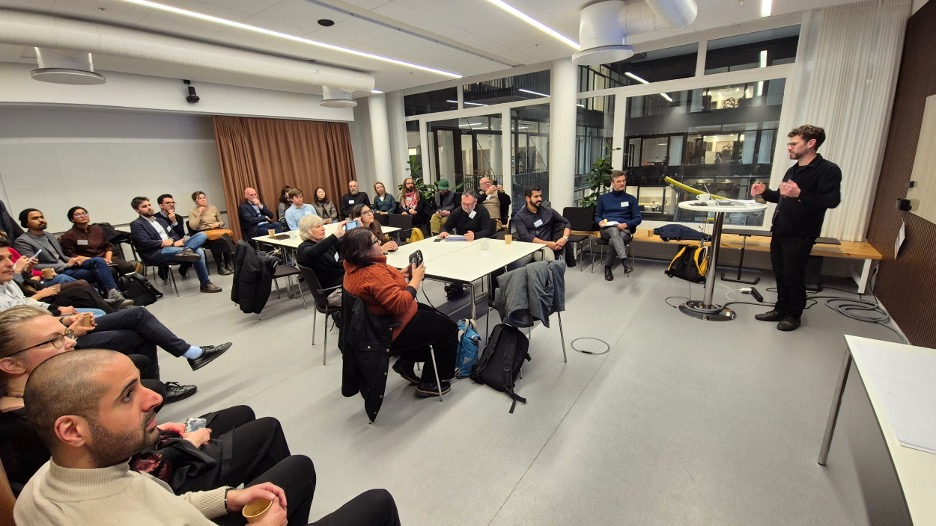
Workshop Discussions
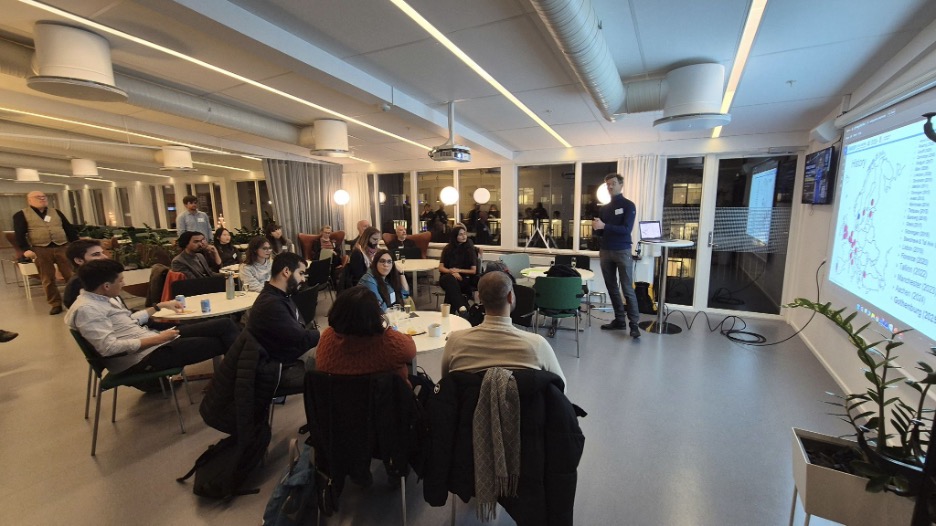
Reflections about 20 years Planning and Complexity
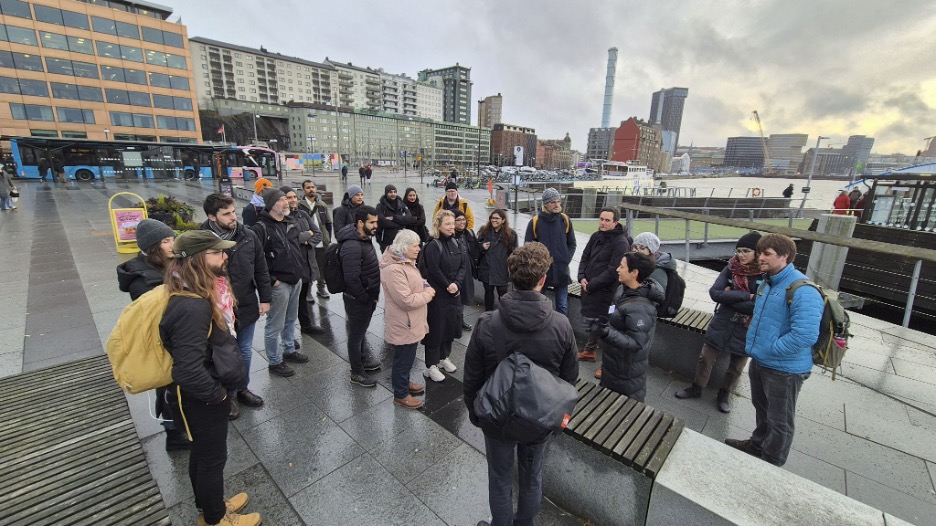
Excursion to the Harbour Area (Stenpieren)
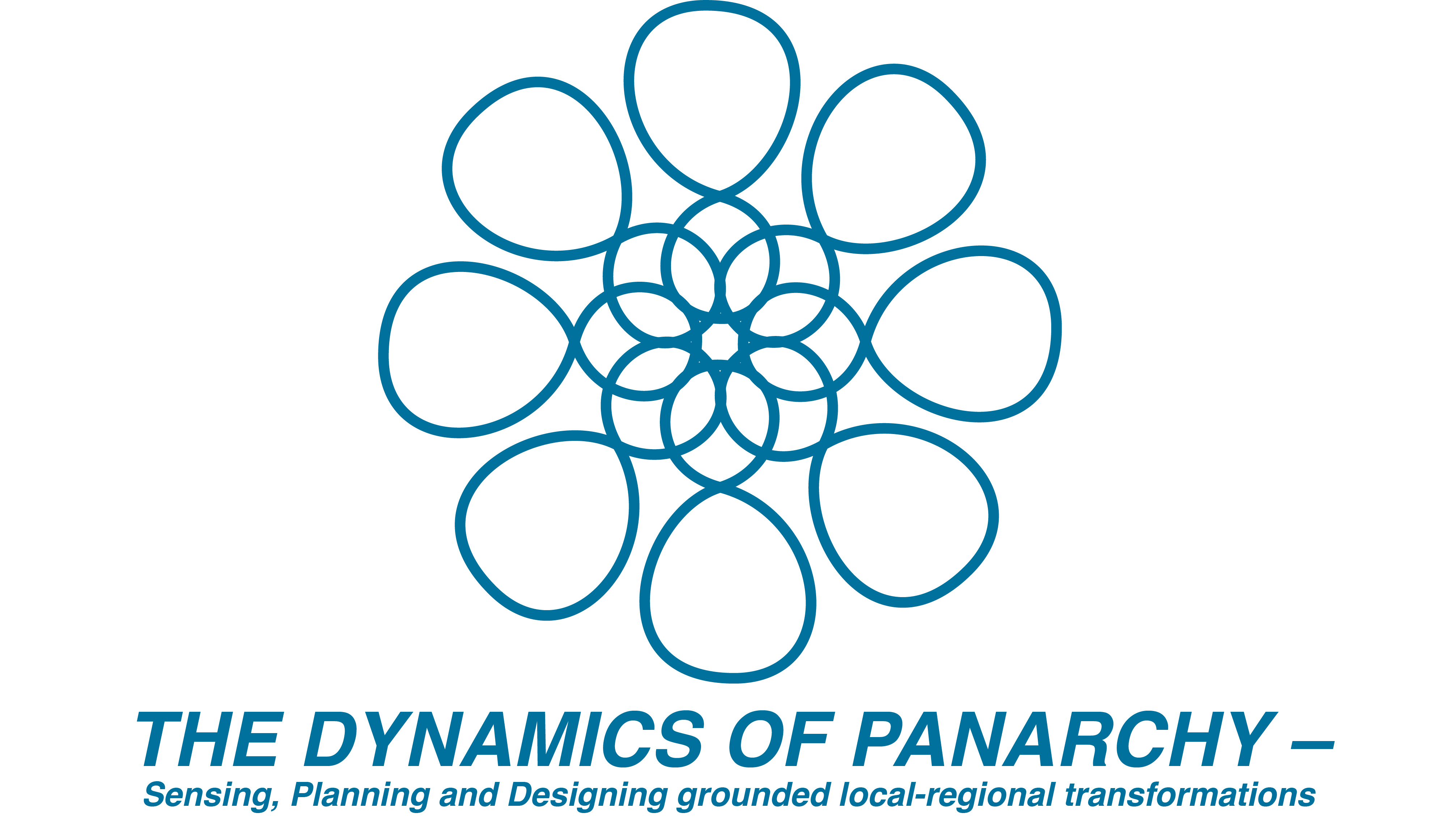
- Details
- Parent Category: THEMATIC GROUPS
- Category: Planning and Complexity

THE DYNAMICS OF PANARCHY – Sensing, Planning and Designing grounded local-regional transformations
27-28 November 2025 - Chalmers University of Technology, Gothenburg, Sweden
Welcome to the Dynamics of Panarchy Conference in Gothenburg 27-28 November 2025. The conference is the 23rd meeting within the AESOP, Association of European Planning Schools and in the 20th anniversary year of the AESOP Thematic Group Planning and Complexity.
PROGRAMME & BOOK OF ABSTRACTS
Download short programme:
Conference Programme (PDF)
Conference website with programme & full book of abstracts:
https://www.chalmers.se/en/current/calendar/ace-aesop-the-dynamics-of-panarchy-conference/
All registered participants: please watch your mailbox for more information regarding practicalities, organisation of sessions, conference dinner, and site visit in Gothenburg.
Keynote speakers
- Jon Norberg: Professor at Department of Ecology, Environment and Plant Sciences, Stockholm University
- Sara Brorström: Professor Department of Business Administration, Gothenburg University
Planning and design often remain a hierarchical and linear process of planning, implementation and maintenance that meet with increasing political ambitions for inclusion, diversity and the critique of a technocratic agenda to spatial transformations. Initiatives in both practice and research constantly seek to combine both top-down and bottom-up approaches. For example, the recent missions of the European Union to strengthen innovation and development through a combination of overall political leadership and local implementation.
The connection between complexity science and spatial planning has, for at least the last 20 years, put the “the perspective of a world in flow, which feeds dissipative systems, through which these adapt and self-organize more or less continuously” (de Roo, 2018, p.28). However, few researchers and practitioners truly engage with the panarchic dynamic of complex adaptive systems and the theoretical and methodological implications – Non-hierarchical and mutual interaction, self-organization between actors, as well as structures and scales of transformation that follow (Gunderson & Holling, 2002). Furthermore, the transfer of a panarchic and adaptive model, developed for describing ecosystems, to describing social system poses critical questions. Beside adaptation, how do we deal with sustaining a diversity of subsystems? and how do we counteract negative effects such as socio-spatial inequalities and an uneven geographic development?
We invite scholars and scholarly practitioners to contribute with research and initiatives that engage with the dynamics of local-regional spatial transformation and the relations between actors, sectors, levels and scales through the lens of complexity theory, and especially working with panarchy, self-organisation, and the non-hierarchical interaction and dynamics of multi-level planning. How can transformations be more effectively conceptualised theoretically, while being grounded in local-regional realities?
Three avenues are of interest
Designing is in itself an iterative practice between phases of speculation, assessment, and proposing. We are interested in initiatives and studies that engage with design thinking and design practices to move beyond predefined, and often stereotyped visions of sustainable and attractive urban and rural development.
Planning tends to often be seen as a hierarchic and linear process of top-down decisions, regulations and governance. However, it is also a broad repertoire of practices that can create gaps and spaces. We are interested in research that critically engage in how planning can address uneven power relations and seeks radical inclusion and re-configurations that foster diversity and pluralism.
Sensing faces challenges to embark in analyses and interpretation beyond predefined categories and spatial units, e.g. reproducing power relations and spatial configurations. We are interested in approaches that can re-frame our sensing of interdependencies between scales, and that critically analyse the local-regional dynamics of circular systems.
Organisation and Contact
The event is organised by Nils Björling and the research area Local-Regional Transformations at Chalmers University of Technology in Gothenburg, Sweden (local organising team 2025: Nils Björling, Joanna Gregorowicz-Kipszak, Jorge Gil, Julia Fredriksson, Flavia Lopes, Roos Teeuwen, and Marco Adelfio) together with Christian Lamker and Jenni Partanen (thematic group coordinators).
E-mail contact:
Visit the local organisers at:
https://www.chalmers.se/en/departments/ace/research/local-regional-transformations/
References
- de Roo, G. (2018). Ordering Principles in a Dynamic World of Change – On social complexity, transformation and the conditions for balancing purposeful interventions and spontaneous change. Progress in Planning, 125, 1–32. https://doi.org/10.1016/j.progress.2017.04.002
- Gunderson, L. H., & Holling, C. S. (eds.) (2002). Panarchy: Understanding transformations in human and natural systems. Island Press.

- WORKSHOP “PLANNING EDUCATION IN THE AGE OF AI”
- Politics of Hope for the Enjoyment of the Sea
- Workshop: How do we say future? Istanbul 2026 - Deadline Extended: 16 November 2025
- AESOP TG ETHICS, VALUES & PLANNING COLLOQUIUM 11: "ROBOTS TAKING OVER THE CITY?! CHALLENGES FOR ETHICS AND SPACE", OCTOBER 24 2025

